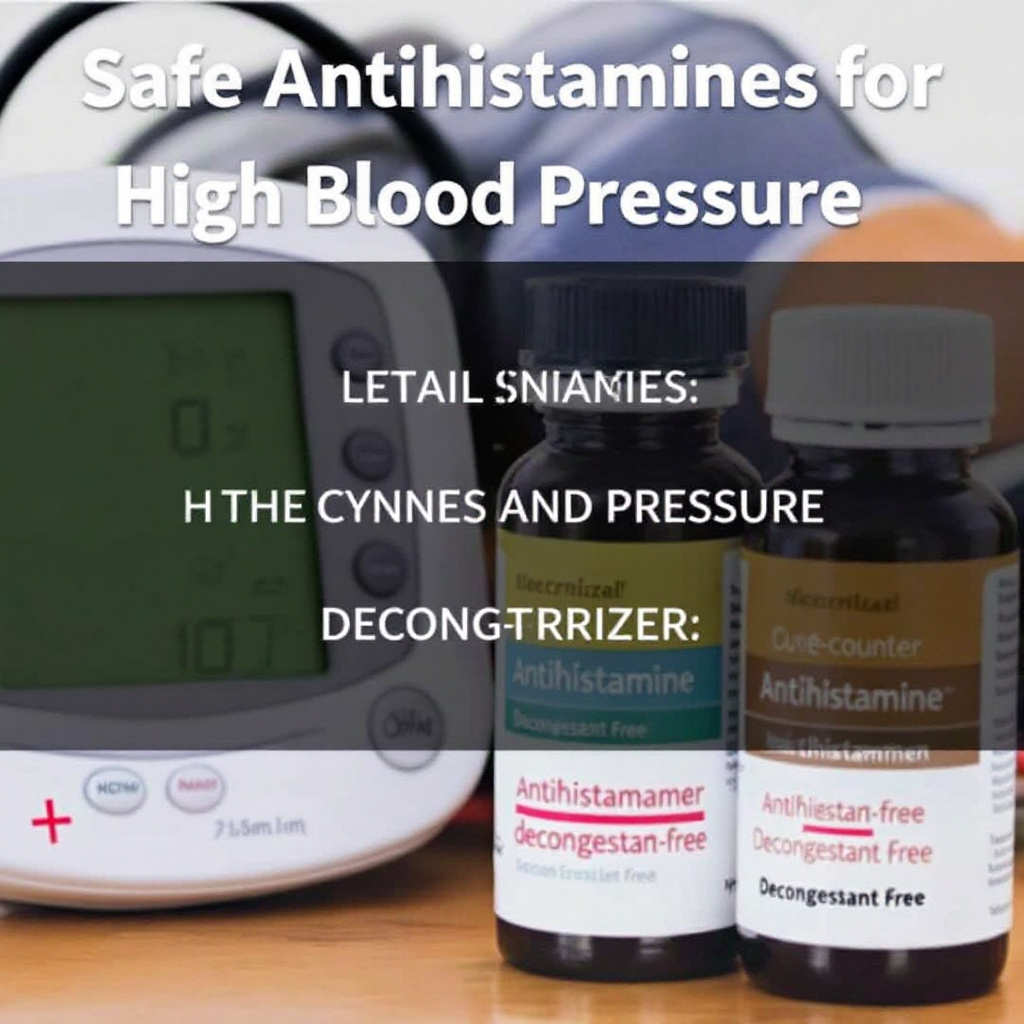Antihistamines are commonly used to treat allergies, hay fever and cold symptoms. But if you have high blood pressure or are at risk of developing it you might wonder: Do antihistamines raise blood pressure?
Let’s break down how antihistamines work whether they affect blood pressure and how to choose the safest options if you are managing hypertension.
What Are Antihistamines?
Antihistamines are medications that block the effects of histamine, a chemical released by your immune system during allergic reactions. There are two main types:
- H1 antihistamines: Treat allergy symptoms (e.g. sneezing itching runny nose)
- H2 antihistamines: Reduce stomach acid (e.g. famotidine for heartburn)
For this topic we are focusing mainly on H1 antihistamines since they are most commonly used for allergy relief.
Do Antihistamines Directly Raise Blood Pressure?
Most H1 antihistamines do not directly raise blood pressure. In fact many are considered safe for people with hypertension when used appropriately.
However some over-the-counter allergy medications contain additional ingredients like decongestants that can increase blood pressure. These decongestants include:
- Pseudoephedrine (found in Sudafed)
- Phenylephrine (found in some cold medicines)
Important: It is not the antihistamine itself but the combination with decongestants that can pose a risk for those with high blood pressure.
Safe Antihistamines for People with High Blood Pressure
If you have high blood pressure, these non-drowsy antihistamine-only medications are usually considered safe:
| Medication Name | Brand Example | Notes |
|---|---|---|
| Loratadine | Claritin | Non-drowsy, safe for BP |
| Cetirizine | Zyrtec | Non-drowsy, minimal heart effects |
| Fexofenadine | Allegra | Non-drowsy, minimal drug interactions |
| Diphenhydramine | Benadryl | Can cause drowsiness; use with caution |
Always choose formulations that do NOT include decongestants.
What to Avoid If You Have High Blood Pressure
Avoid these ingredients and products:
- Pseudoephedrine or Phenylephrine (often marked as D like in Claritin-D)
- Multi symptom cold medications
- Nasal sprays with vasoconstrictors
These ingredients can cause:
- Elevated blood pressure
- Increased heart rate
- Insomnia or nervousness
Do Antihistamines Affect Blood Pressure Indirectly?
In rare cases first generation antihistamines like diphenhydramine may:
- Cause drowsiness and reduce activity indirectly influencing blood pressure
- Interact with other medications like beta blockers
- Affect heart rhythm (especially in older adults or those with heart disease)
What Should You Do If You Have High Blood Pressure?
If you need allergy relief:
- Read labels carefully. Choose antihistamine only products.
- Avoid combination meds. Especially those marked “-D” (which means they contain decongestants).
- Check with your doctor or pharmacist before starting a new medication.
- Monitor your blood pressure regularly if you begin a new allergy treatment.
Natural Alternatives for Allergy Relief
If you prefer to avoid medication entirely you can try:
- Saline nasal sprays
- HEPA air filters
- Quercetin supplements (a natural antihistamine)
- Butterbur (herbal remedy for hay fever)
Note: Always consult your doctor before trying new supplements.
Conclusion
Most antihistamines are safe for people with high blood pressure as long as they don’t contain decongestants. Always read labels and consult your healthcare provider before starting any new medication especially if you have existing heart or blood pressure conditions.
